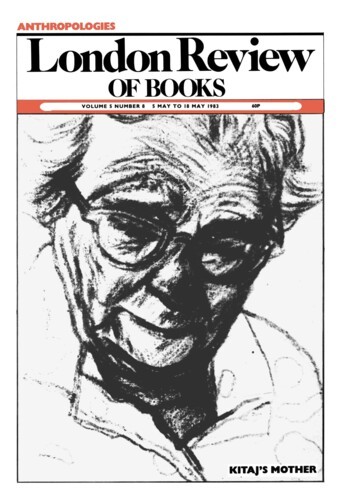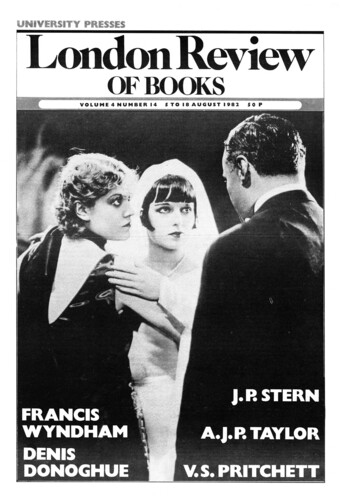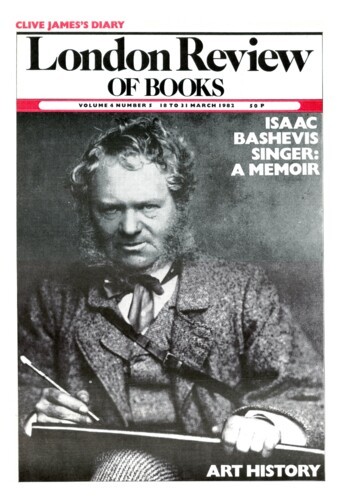John Bull s’en va t’en guerre
John Brewer, 5 May 1983
Eighteenth-century states were built for war. Their largest organisations were armies and navies, the bulk of their taxes funded the armed forces, and their heroes were the leading soldiers and sailors whose valiant deeds attested to the power of the armigerous nation. War was the norm, peace an aberration – a pause when the great and little powers drew breath and prepared to continue the fight. Thus the period from the Glorious Revolution to the end of the Napoleonic wars was one of almost unmitigated hostility between England and France. Both nations mobilised an ever-growing war machine in the struggle for European supremacy and hegemony on three continents.




